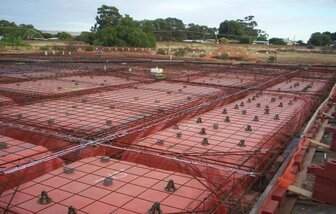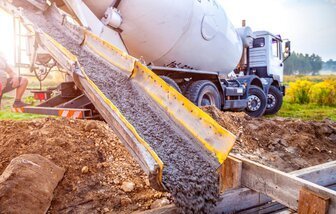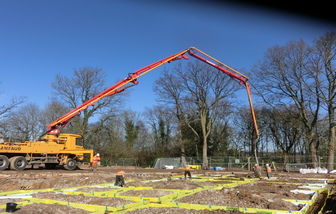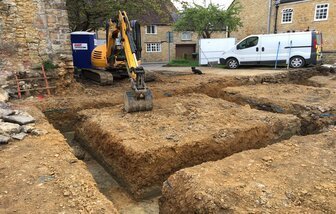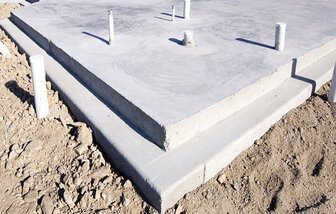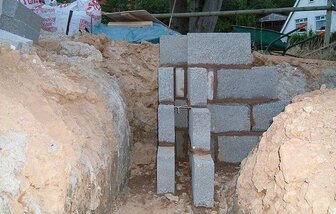What is a building slab?
Building slabs are an essential component of construction projects in the UK. They serve as the foundation for various structures, providing stability and support. In this article, we will explore what building slabs are, their types, uses, and the importance of proper installation. Learn more about building slabs and their significance in construction projects.
Introduction to Building Slabs in the UK
Building slabs are an essential component of construction projects in the UK. They provide a solid and stable foundation for structures, distributing the weight evenly across the ground.
This article discusses the types of building slabs commonly used in the UK, such as ground-bearing slabs, suspended slabs, precast slabs, and composite slabs. It also highlights the benefits of building slabs, including strength, durability, thermal efficiency, design flexibility, and cost-effectiveness.
The importance of complying with building regulations and standards is emphasizsed, ensuring the safety and quality of building slabs in the UK construction industry.

Building slabs offer several advantages in construction projects:
1. Stability and Support
Building slabs provide a stable and solid foundation for structures, ensuring their longevity and safety.
2. Versatility
Building slabs can be customized to meet specific design requirements, allowing for flexibility in construction projects.
3. Durability
Concrete slabs are known for their durability and ability to withstand heavy loads and environmental factors.
4. Cost-Effective
Building slabs offer a cost-effective solution for construction projects, as they can be prefabricated off-site and installed quickly.
There are different types of building slabs used in the UK, each designed to meet specific requirements:
1. Concrete Slabs
Concrete slabs are the most common type of building slab used in the UK. They are made by pouring concrete into a formwork and allowing it to cure and harden. Concrete slabs provide excellent durability and strength, making them suitable for a wide range of applications.
2. Suspended Slabs
Suspended slabs are used in multi-story buildings where the floor is supported by beams or columns. These slabs are constructed by placing reinforcement bars within the formwork and then pouring the concrete. Suspended slabs offer flexibility in design and can accommodate services such as electrical wiring and plumbing.
3. Precast Slabs
Precast slabs are manufactured off-site and then transported to the construction site. They are made by pouring concrete into molds and allowing it to cure before being transported. Precast slabs offer faster installation and can be customized to meet specific design requirements.
4. Ribbed Slabs
Ribbed slabs are a type of reinforced concrete slab that has ribs or voids within the slab. These ribs help to reduce the weight of the slab while maintaining its strength. Ribbed slabs are commonly used in buildings where longer spans are required.
5. Ground-Bearing Slabs
Ground-bearing slabs, also known as raft slabs or floating slabs, are designed to spread the load of the structure over a larger area. They are suitable for sites with poor soil conditions or areas prone to ground movement. Ground-bearing slabs are commonly used in residential and commercial buildings.
Proper installation of building slabs is crucial to ensure the long-term stability and durability of the structure. Here are some reasons why proper installation is important:
- Load distribution: Building slabs distribute the weight of the structure evenly, preventing excessive stress on any particular area.
- Structural integrity: Properly installed slabs provide a solid foundation, ensuring the structural integrity of the building.
- Preventing settlement: A well-installed slab helps prevent settlement and sinking of the structure over time.
- Waterproofing: Proper installation includes measures to prevent water seepage and protect the structure from moisture-related damage.
- Longevity: A professionally installed building slab can significantly increase the lifespan of the structure.
In conclusion, building slabs are essential components of construction projects in the UK. They provide stability and support for various structures, ensuring their long-term durability. Whether it’s a residential, commercial, or industrial project, proper installation of building slabs is crucial for the overall success of the construction. By understanding the different types of slabs and their uses, construction professionals can make informed decisions to ensure the best outcomes for their projects.
Building slabs play a crucial role in construction projects in the UK. They provide stability, support, and durability to structures, ensuring their longevity and safety. With various types of building slabs available, construction professionals can choose the most suitable option based on their specific requirements. Whether it’s a residential, commercial, or infrastructure project, building slabs are an essential component for successful construction in the UK.
Foundations for the Empire State Building?
The Empire State Building, standing tall and proud in the heart of New York City, is an iconic landmark that has captivated people around the world for
Why building foundations are necessary?
Foundations are the bedrock of any building, be it a humble house or towering high-rise buildings. They have the vital job of transferring the entire weight
The perfect concrete pour for your construction project
We will discuss the dos and don’ts of concreting for your next construction project, covering aspects such as the concrete mix, pouring, curing process
What is a raft foundation?
Raft foundations are a popular choice for many construction projects, providing a stable and durable base for buildings. Explore the benefits of raft foundations, the construction process
What is a building foundation?
A building foundation is the lowermost part of a structure that is in direct contact with the ground. It is designed to distribute the weight of the building evenly and transfer it to the underlying soil or rock.
Types of building foundations
This article discusses the different types of building foundations in the UK, including strip foundations, raft foundations, piled foundations, trenchfill foundations, pad foundations, caisson foundations
How long do foundations take to cure?
A step-by-step guide is required, starting with marking lines to indicate where to dig the foundations trenches. After landscaping, shuttering, reinforced with timber, must be used
How to set out building foundations
Setting out the building foundations of a construction project is a critical stage, and it requires the use of specialised tools and materials. In the UK, the most common tools
How deep do building foundations need to be?
Building foundations are a critical component of any construction project in the UK, and it is important to ensure that they are constructed to the required depth.
Foundation building regulations
The regulations are designed to ensure that construction projects are structurally sound and meet certain safety standards. This includes the use of appropriate foundation systems
What is a building slab?
Building slabs are an essential component of construction projects in the UK. They provide a solid and stable foundation for structures, distributing the weight evenly across the ground. This article discusses the types of building slabs commonly
Why building foundations fail?
Understanding the factors that contribute to building foundation failures in the UK, such as soil conditions, poor drainage, tree roots, construction errors, subsidence, and the age of buildings.
Ready to start your project?
Let's Work Together
To get started, for general enquiries simply complete the form below. Provide us with your project details, and our team will review your requirements. We will then get back to you with a customised solution that fits your needs. Whether you have a small-scale project or a large-scale development, we have the expertise and resources to handle it. Once we have received your submission, you will receive a confirmation email (Please check all your email boxes)
If you prefer, and have a project in mind and seeking a price you can also send us your project documents and any photographs directly to admin@totalgroundworks.co.uk We will carefully examine your documents and provide you with a competitive quote together with a timescale from inception through to completion for your project.


